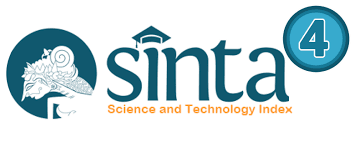PERAN PENDIDIK DALAM PENANAMAN NILAI-NILAI ANTI-KORUPSI
DOI:
https://doi.org/10.34125/jmp.v10i1.402Keywords:
Korupsi, Pendidikan Anti-Korupsi, Pendidik, Nilai-Nilai Anti-Korupsi.Abstract
This research aims to examine the strategic role of educators in instilling anti-corruption values. It employs a library research method, in which data were gathered through the analysis of various scholarly sources, including journals, books, and other relevant documents concerning the role of educators in anti-corruption education. The findings reveal that educators are not merely responsible for transmitting scientific knowledge, but also for internalizing moral values such as honesty, transparency, responsibility, justice, and social concern through exemplary conduct, contextual learning, and a supportive educational environment. The early and systematic inculcation of anti-corruption values is a long-term preventive measure for fostering a deeply rooted anti-corruption culture within national life. The success of anti-corruption education is highly dependent on the capacity, integrity, and commitment of educators in designing and implementing effective, participatory, and value-based learning strategies. In a multicultural society such as Indonesia, a “glocal (global-local)” approach that integrates universal values with local wisdom can enhance the relevance and effectiveness of anti-corruption education. Therefore, synergy among various stakeholders—including educators, educational institutions, government bodies, and the broader community—is essential to strengthen anti-corruption education as an integral component of national character development.
Downloads
Published
How to Cite
Issue
Section
License
Copyright (c) 2025 Jurnal Manajemen Pendidikan

This work is licensed under a Creative Commons Attribution-ShareAlike 4.0 International License.














